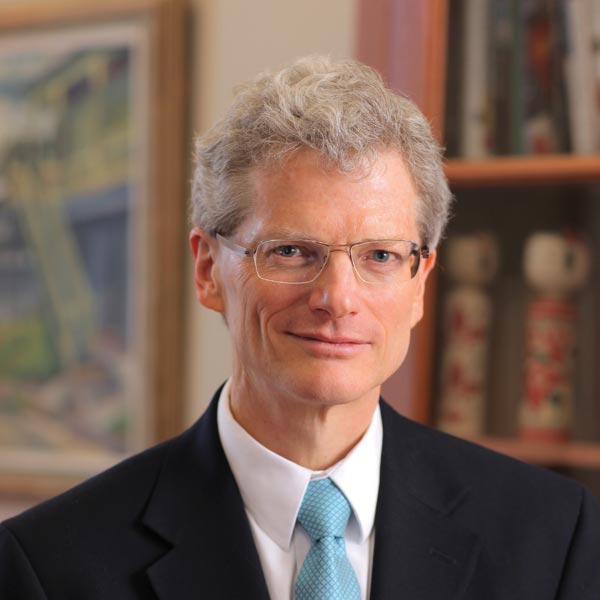Weaving Together Students’ Passions

Vassar has long been at the forefront of multidisciplinary education, offering some of the first undergraduate majors in areas such as Africana studies, cognitive science, and urban studies. The Independent Program, which began more than four decades ago, allows students to design their own rigorous programs of multidisciplinary study, drawing on guidance from multiple faculty advisers. We provide majors in 17 multidisciplinary and interdepartmental subjects—an unusual number for a college our size. Such offerings challenge students to think and collaborate across disciplines, weaving together interests nurtured as they explore Vassar’s vibrant liberal arts curriculum.
Today’s faculty and students across the academic spectrum are taking multidisciplinary education to a new level. As we have developed the concept for the new Integrated Science Center over the past several years, we have emphasized the collaborative approaches used by Vassar science faculty and students. One prominent space on the first floor of the new “bridge” building, for instance, will facilitate collaboration among biology, chemistry, earth science, and environmental studies students, faculty, and staff, addressing some of the most pressing issues of our time. This Earth and Environment Lab will also benefit from easy access to the Fonteyn Kill, which winds beneath the “bridge” building, and the adjacent Edith Roberts Ecological Laboratory. In advance of the Science Center’s groundbreaking, multidisciplinary teams of faculty and students are studying these outdoor resources and developing plans—along with architects and landscape designers—to improve water quality, enhance riparian buffer zones, and restore ecosystems.
Curricular offerings linking sciences with other disciplines are flourishing, as well. One example is the Multidisciplinary Learning and Living Community on Food, featured on page 16 of this issue. Our Center for Collaborative Approaches to Science has been the catalyst for innovative courses such as “The Limits of the Universe and the Limits of Understanding” (philosophy and physics) and “Race: Science and Controversies” (biology and English).
A decades-long community re-entry program with Vassar students working at the Otisville and Green Haven correctional facilities under the guidance of a professor of religion and Africana studies has flowered in recent years into regular course offerings by four faculty members, both at Otisville and at a new site—the Taconic Correctional Facility. These courses involve Vassar students and incarcerated men and women side by side in prison classrooms. They bring literary, religious, political, and sociological perspectives together in rich discussions of topics such as “Martin and Malcolm: Religion and Social Change in America” and “Family, Law, and Social Policy.”
Students practice multidisciplinary inquiry in the City of Poughkeepsie, as well. Members of a recent architectural design course developed proposals for architectural interventions on the Poughkeepsie waterfront, including plans to facilitate access to downtown’s hidden waterfalls. Another urban studies course partnered with the Poughkeepsie Farm Project (PFP) on a study of the local food system, helping the PFP obtain a major grant for community food development from the U.S. Department of Agriculture.
I could go on, but the import of these examples is clear: Vassar faculty and students are working across disciplines in ever more creative ways that build our students’ passionate engagement with learning and augment the impacts of multidisciplinary perspectives in preparing them to transform the world around them.
Bringing this multidisciplinary fabric of learning to an even fuller development is the purpose of a curricular proposal the faculty have been considering—with my urging—over recent months. The idea is that all of our students should be prepared, as seniors, to do something extraordinary to bring together the threads of their learning. Such projects might take many forms, from traditional theses to arts collaborations to startup business plans to community development initiatives. Weaving their own unique tapestries that represent their learning in multiple disciplines at Vassar will prepare our seniors for life beyond our gates, equipping them for lives of passionate, creative engagement in a world that needs the best of what Vassar graduates can offer.
